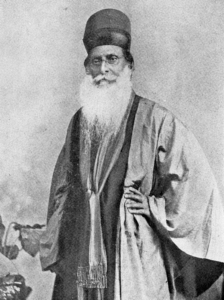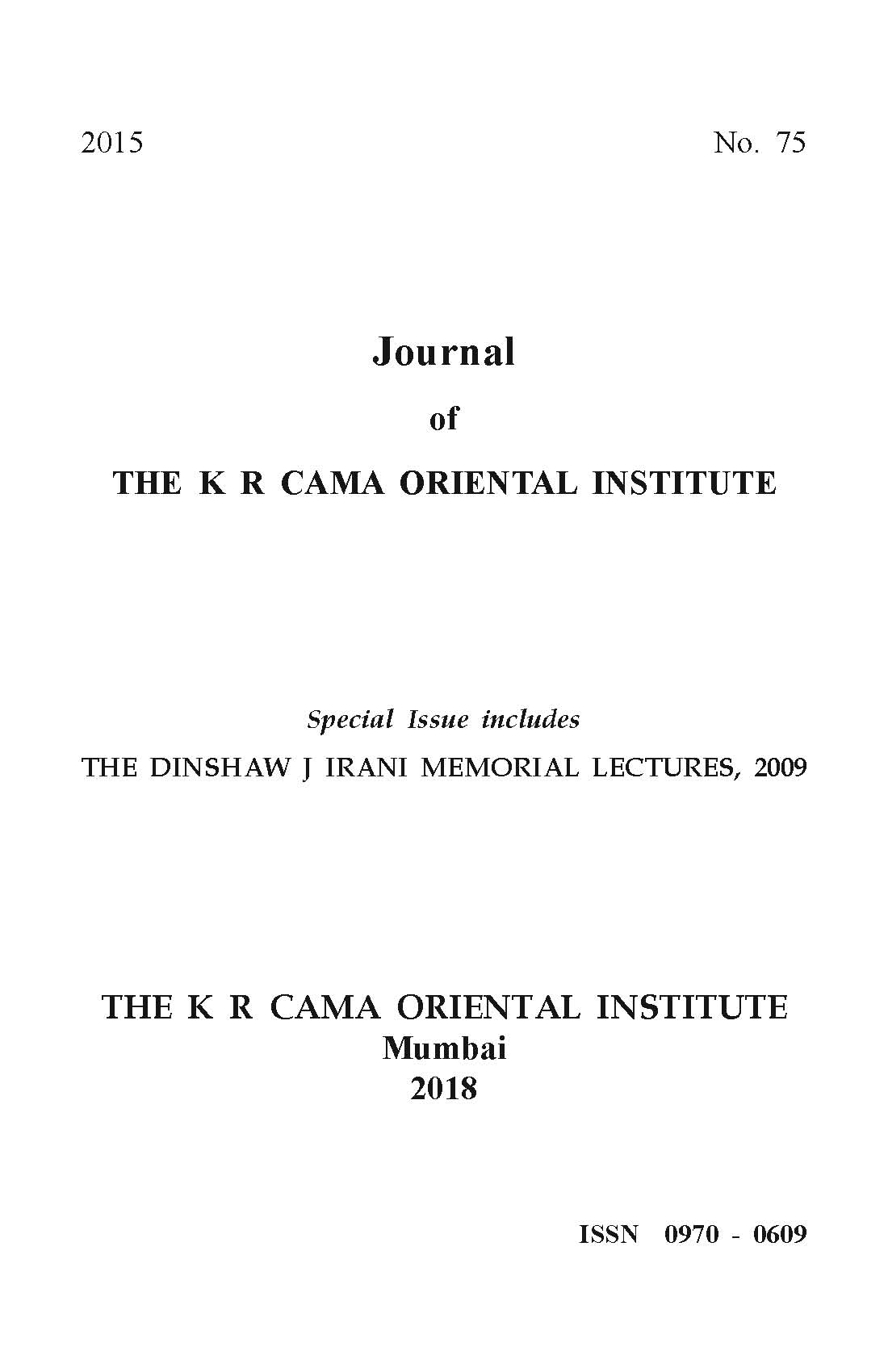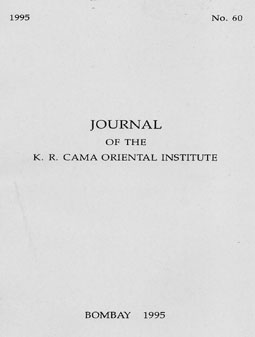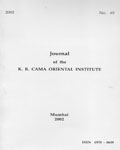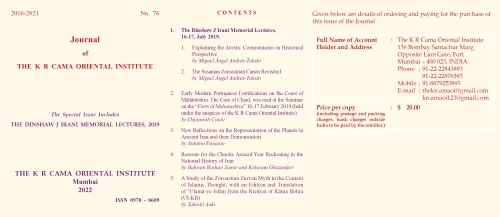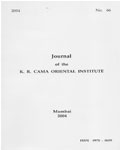Description
Journal of The K R Cama Oriental Institute
Special Issue includes
The Dinshaw J Irani Memorial Lectures, 2019
In 2009 Professor Kaikhosrov Dinshaw Irani made a generous donation to the K R Cama Oriental Institute from the estate of his late brother Mr Furrokh Dinshaw Irani for setting up an endowment in the name and memory of their father, the late Mr D J Irani for organising lecture series by eminent scholars focusing on the “period and culture of the time of Zarathushtra and his message”.
It is a privilege for the Institute to organise and hold the Dinshaw J Irani Memorial Lecture Series from 2009 onwards.
The first series of the Lectures was delivered by Professor Dr Anna Krasnowolska, Professor, Institute of Oriental Studies, Department of Iranian Studies, Jagiellonian University, Krakow, Poland under the auspices of the K R Cama Oriental Institute on 8th, 9th, 10th,11th June 2009.
Raham Asha is a research scholar whose studies on Perso-Aryan linguistics often involve the reconstruction of the conceptual universe of the Mazdayasnians. His research is currently in progress at the Academy of Sciences, in Dushanbe (Tajikestan), on the Perso-Aryan physicians and their medical doctrine. Recent books written by him include The Cosmic Doctrine of the Magi (1995), The Medical Doctrine of the Magi (1999), The Significance of the Sacred Girdle (2005), Avesta Glossary (2009), Jāvēdāδn Xraδ (2011) and Pᾱrsīg Language (The so-called Pahlavi), (2017)
Anna Krasnowolska (Professor Dr.), born in Cracow, Poland, in 1949; studied Iranian philology at the Jagiellonian University, Cracow, 1967-72. She has been working at the Institute of Oriental Studies, Department of Iranian Studies of the same University since 1972, presently as professor. Director of the Institute 1999-2002; Head of the Department of Iranian Studies 2000-2017. Member of Societas Iranologica Europaea (board member 2003-2011), member of the Oriental Committee of the Polish Academy of Sciences, editorial board member of Folia Orientalia journal. Doctoral dissertation (1983): Epic Cycles in Ferdousi’s Shāh-nāmeh (in Polish, unpublished); habilitation (1998): Some Key Figures of Iranian Calendar Mythology. Author of works on Persian epos, classical and modern literature, mythology and folklore.
Daniel J Sheffield is Assistant Professor of Near Eastern Studies, Princeton University, Princeton NJ, USA. He completed his doctorate from the Department of Near Eastern Languages and Civilizations at Harvard University (USA) in 2012. His dissertation was titled In The Path Of The Prophet: Medieval And Early Modern Narratives Of The Life Of Zarathushtra In Islamic Iran And Western India. He was a Fellow in the Princeton Society of Fellows in the Liberal Arts at Princeton University, USA from 2012 to 2015. He has just completed his first book, entitled Cosmopolitan Zarathustras: Language, Religion, and Prophethood in Iran and South Asia. His articles include “The Wizirgerd ī Dēnīg and the Evil Spirit: Questions of Authenticity in Post-Classical Zoroastrianism” which is published in the volume Iranian and Zoroastrian Studies in Honor of Prods Oktor Skjærvø, Bulletin of the Asia Institute 19, 2009; “Picturing Prophethood: The K R Cama Oriental Institute Zaratushtnama, Manuscript HP 149 And The Origins Of Portraits Of The Prophet Zarathushtra” Journal of the K R Cama Oriental Institute No. 72, 2012; “Iran, The Mark Of Paradise Or The Land Of Ruin? Approaches To Reading Two Parsi Zoroastrian Travelogues.” In Sunil Sharma and Roberta Micallef (Eds.), On Wonders Of Land And Sea, 2013; “The Language of Heaven in Safavid Iran: Speech and Cosmology in the Thought of Āẕar Kayvān and His Followers.” In Alireza Korangy and Daniel Sheffield (Eds.), No Tapping Around Philology: A Festschrift in Honor of Wheeler M. Thackston’s 70th Birthday; “Primary Sources: New Persian and Gujarati.” In Michael Stausberg and Yuhan Vevaina (Eds.), The Wiley-Blackwell Companion to Zoroastrianism (2015); “Lord of the Planetary Court: Revisiting a Nativist Prophet of Early Modern Iran.” In Sabine Schmidtke (ed.), Near and Middle Eastern Studies at the Institute for Advanced Study, Princeton: 1935–2018 (2018).

